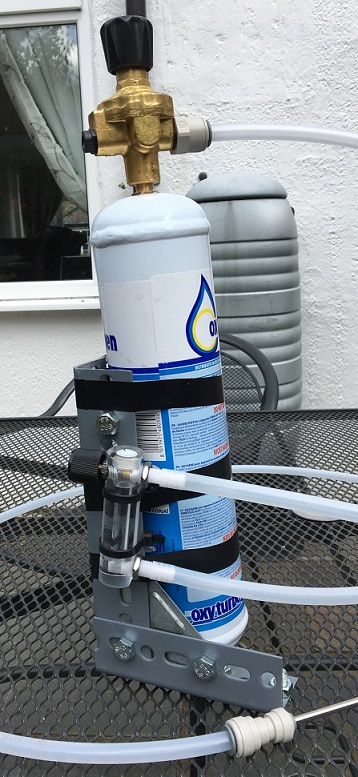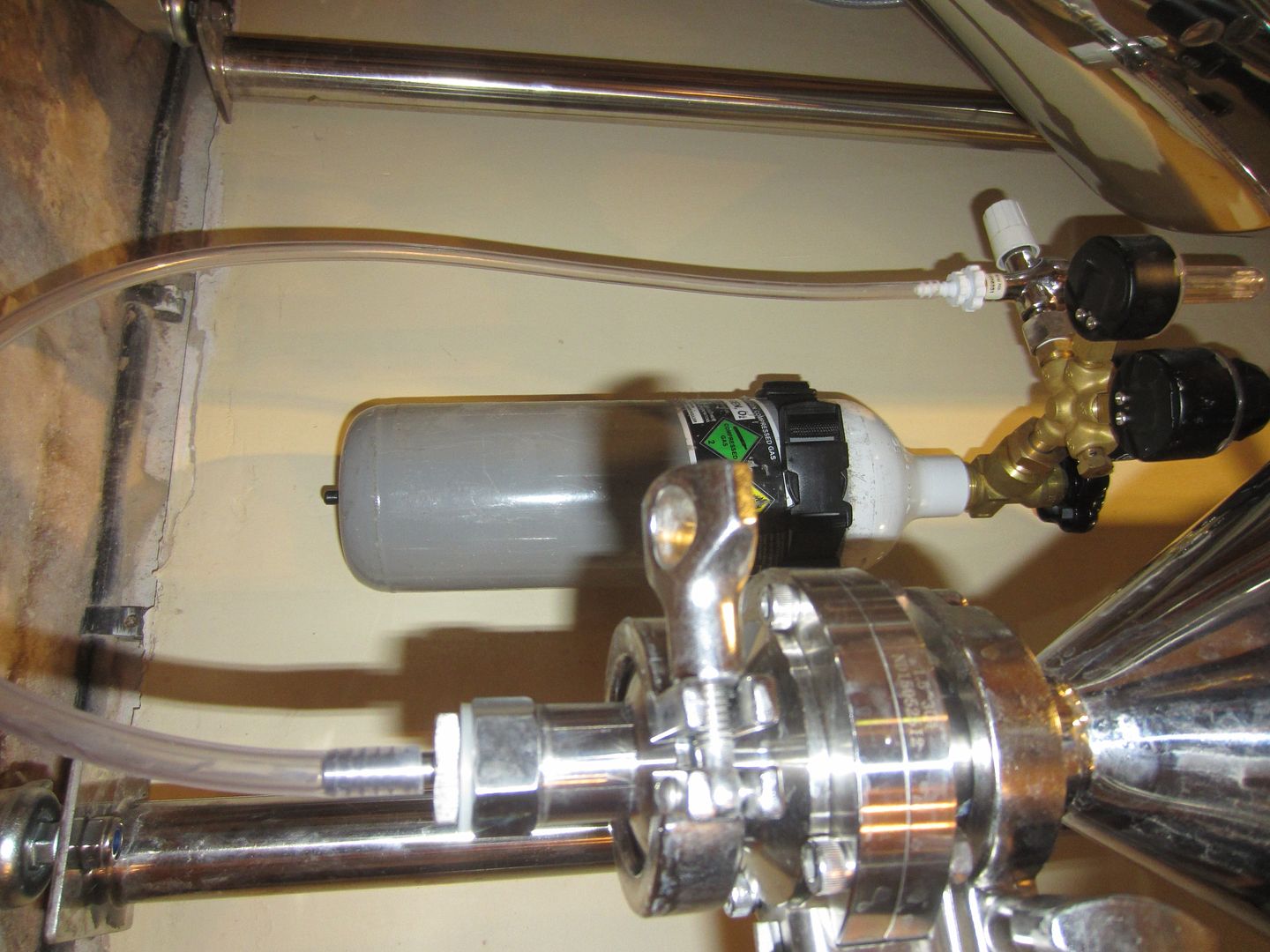UPDATE: I've updated this post to cover my setup as of 2018...
Pure Oxygen tank/bottle
Starting with the obvious you need pure O2. The only readily available supply of this seems to come from welding supply shops.
http://welduk.com/product/oxyturbo-4803 ... s-cylinder
Now you may be wondering if this is 'food grade'. Having hunted around a bit, including on a private pilots forum where they were wondering about sources of oxygen bottles for higher altitude flight, the consensus seems to be that all the pure oxygen comes from the same source, whether welding or medical. The difference is mainly down to the sanitary nature of fittings in the packaging and certification for medical use.
You can either get bigger refillable bottles for oxygen, or smaller 'disposable' bottles.
I'm only looking at disposables here as a disposable will cost about £25 for a 1 litre bottle of oxygen at 110 bar, which is equivalent to about 108 litres of oxygen at atmospheric pressure. As I only need 1 litre of oxygen per batch a disposable is going to keep me going for quite a long time.
A refillable bottle is going to be 9 or more litres and enough to keep me going for 15 years - so perhaps more appropriate for a semi-pro or pro setup.
So I have an oxyturbo cylinder as linked to above.
Regulator
Each type of bottle (and even each different manufacturer of disposable bottle) seems to need a different regulator.
I purchased the appropriate regulator for the Oxyturbo cylinder at the same time. This one:
http://welduk.com/product/regulator-dis ... n-cylinder
It has a stupid little barb on it that I removed and replaced with a JG fitting, but found that it leaked after a while.
I have since moved to a regulator from the same company with a gauge and a proper screw on fitting for the gas line rather than a barb:
http://welduk.com/product/regulator-gau ... n-cylinder
You can screw a JG 3/8" bsp to 3/8" push fit fitting straight on, it doesn't leak, and the gauge tells you when you're running out of oxygen. Much better!
Flow Meter
Most of the options for flow meters are for measuring way more than 1 litre per minute.
There are two options that can measure a lower flow rate.
Cole Parmer sells one for just over £20, but with their delivery charge you'll be close to £30 once done:
http://www.coleparmer.co.uk/Product/Poc ... Y-32500-80
Anecdotal comments have said that it's very expensive for what you get. I have not seen any comments on accuracy (I'd hope at that price there would have been some calibration!)
The other option is an LZQ oxygen flow meter that you can find on ebay. I started off with one that measures 0-3 litres per minute, and then changed to one that measures 0-1.5 litres. Both were a few pounds delivered, and when checking accuracy they were close enough.
It has metal barbs to connect to that seems to be a good fit for 3/8" gas/beer line or you can screw on JG fittings.
If you want to check the accuracy of your flow meter, then this video shows a useful method of inverting a measuring cylinder over the top of your hose/air stone:
https://www.youtube.com/watch?v=lOMjYHh7lwE
Air Stone
The final choice on equipment is the air stone. You can get them in steel or ceramic, and with 0.5 or 2 micron holes.
0.5 micron should ensure better oxygen transfer so I'd recommend that.
I went with a stainless steel wand from Brew Builder to make the whole thing easier to handle, particularly when keeping the stone submerged while oxygenating wort.
https://www.brewbuilder.co.uk/air-stone-wand.html
Before and after use I boil the end of the wand in a solution of citric acid to avoid crud build up and scale. I also wrap it in cling film to avoid getting anything on it or touching the stone end.
Gas line and fittings
To fit the whole thing together I used:
- JG 3/8" bsp female to 3/8" push fit (on the regulator)
- 3/8" beer/gas line (pushed onto flow meter barbs)
- JG 3/8" to 3/16" inline reducer to connect the beer line to the aeration wand.

Ingredients: Water, Barley, Hops, Yeast, Seaweed, Blood, Sweat, The swim bladder of a sturgeon, My enemies tears, Scenes of mild peril, An otter's handbag and Riboflavin.


